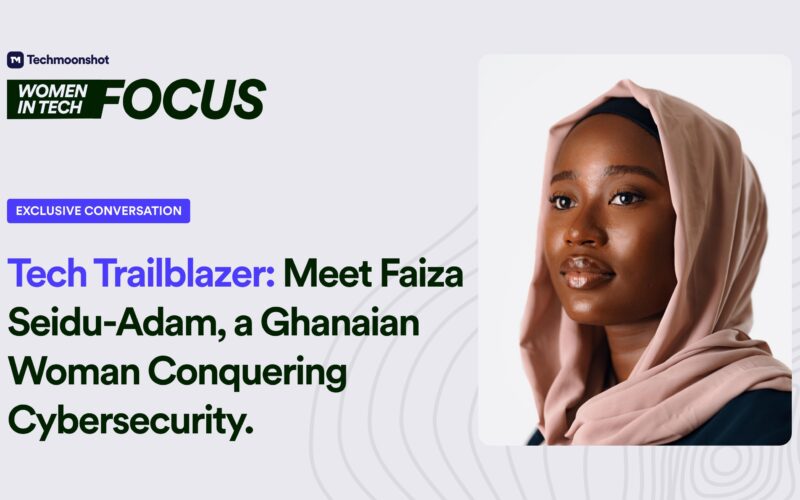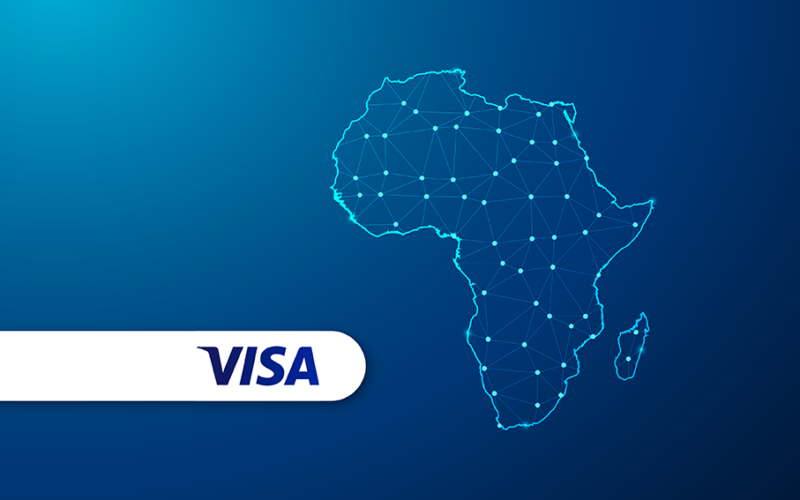Faiza Seidu-Adam is a rising star in the field of cybersecurity, actively working to shape a more secure digital future for Ghana and Africa. With over five years of experience navigating the complexities of privacy and cybersecurity technologies, she has emerged as a pivotal figure in two key initiatives:
- GirlyTech GH: Founded by Faiza, GirlyTech GH empowers young Ghanaian women by equipping them with the skills and knowledge to thrive in the tech industry, with a particular focus on cybersecurity. This initiative dismantles stereotypes and broadens the participation of women in a traditionally male-dominated field.
- Cyber Cafe: Recognizing the importance of continuous learning and community building, Faiza established Cyber Cafe, a monthly cybersecurity meetup. This platform fosters knowledge exchange, collaboration, and professional development among cybersecurity professionals in Ghana.
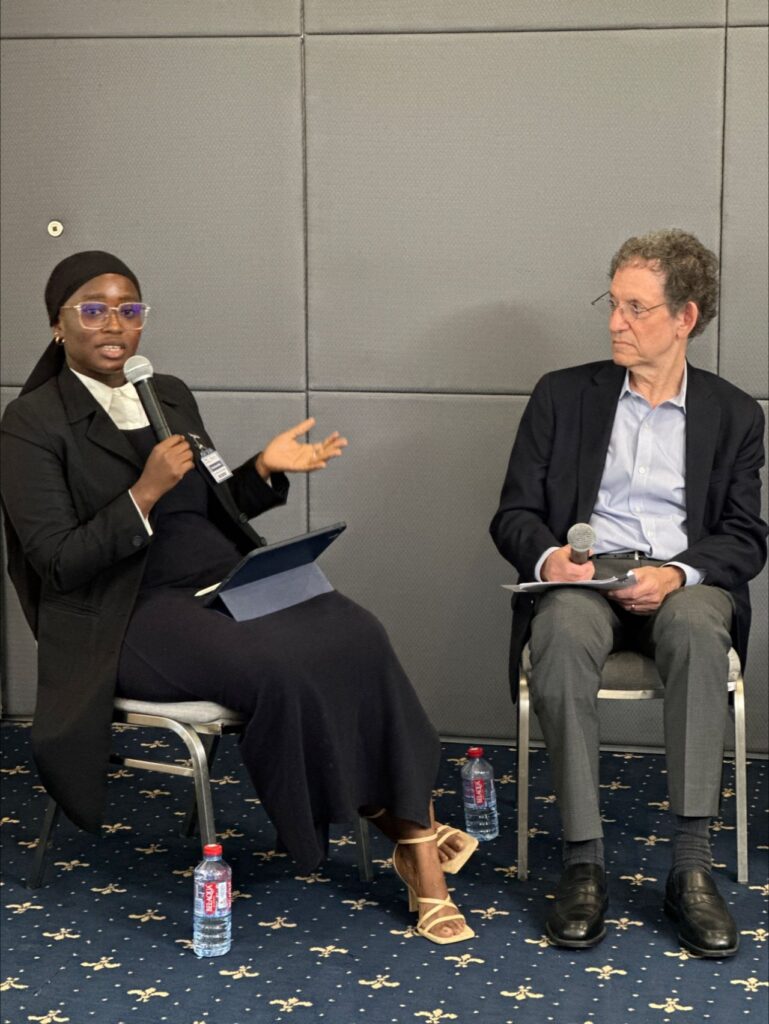
Faiza’s dedication extends beyond technical expertise. She is passionate about inspiring the next generation and ensuring that Ghana has a strong pipeline of cybersecurity talent. Through GirlyTech GH and Cyber Cafe, she is laying the groundwork for a more secure digital future for Ghana and Africa at large. Faiza is also currently a student at the University of East London, doing her master’s degree in Information Security and Digital Forensics.
In our conversation with Faiza Seidu-Adam, we understand that Faiza’s foray into cybersecurity wasn’t merely happenstance; it was borne out of a profound curiosity and a fervent desire to make a tangible difference in the digital world.
Can we get to know you?
My name is Faiza Seidu-Adam and growing up, like many kids today, I loved being on the phone every chance I got, which ignited my passion for tech and has shaped my career choices. Today, I am a Cybersecurity and Privacy Professional.
What first sparked your interest in cybersecurity?
My early interest in tech led me to pursue a degree in Information Technology. As I delved deeper into the field, I became increasingly aware of the importance of cybersecurity in protecting sensitive information and ensuring digital privacy. My interest was further sparked during my time working as a Network Support Officer and my experience working with the Data Protection Commission. These roles gave me firsthand insight into the critical need for robust cybersecurity measures and the complexities involved in protecting data. The dynamic and ever-evolving nature of cybersecurity and the opportunity to make a meaningful impact by safeguarding individuals and organizations has driven my career in this direction.
Did you have any role models or mentors who influenced your career
path?
Yes, I’ve been lucky to have some great role models and mentors who’ve shaped my cybersecurity journey. They’ve been like guiding lights, sharing their wisdom and experiences, and helping me find my way through this complex field. Their support and encouragement have meant a lot to me and have influenced the direction of my career.
Can you tell us a bit about your educational background and any relevant certifications you’ve obtained so far?
I have a degree in Information Technology from Ghana Communication Technology University. Additionally, I hold several relevant certifications, including CompTIA Security+, ICSI |CNSS Certified Network Security Professional, Fortinet Network Security Expert Level 1 &2: Certified Associate and I am a Certified Data Protection Supervisor. These certifications have provided me with a strong foundation in cybersecurity principles and best practices, enabling me to effectively navigate the challenges of the industry and contribute meaningfully to the field. Currently, I am pursuing my master’s degree in Information Security and Digital Forensics at the University of East London.
You’re a founder of a cybersecurity community in Ghana for female,
how did the concept come about?
My cybersecurity community for females in Ghana originated from my personal experience as the only female member of my workplace cybersecurity team. Recognizing the need for greater gender diversity and inclusion in the field, I was inspired to create a supportive community where women could come together to learn, collaborate, and empower each other in cybersecurity.
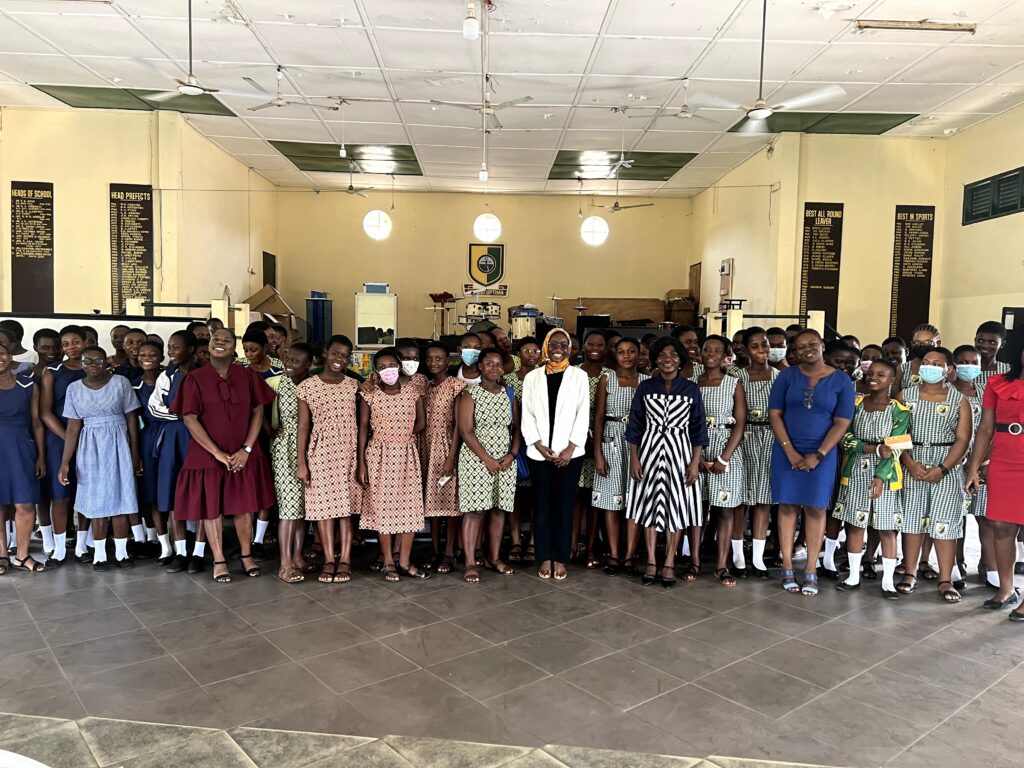
My passion for inclusion led me to actively advocate for the recruitment of more female professionals into our team. As a result, we were able to successfully onboard two additional female members, further enhancing diversity and representation within our organization.
This firsthand experience of the positive impact of inclusion fueled my determination to extend this support beyond my workplace and create a platform where women across Ghana and Africa could access resources, mentorship, and opportunities in cybersecurity. Thus, the idea for the cybersecurity community for females was born, to foster a more inclusive and equitable cybersecurity landscape in Ghana and Africa.
Can you walk us through a typical day or week in your role as a cyber
security professional?
As a cybersecurity professional, my typical day begins with reviewing security alerts and incidents as a Security Operations Center (SOC) analyst. This involves analyzing data from various security tools and systems to identify potential threats and vulnerabilities. I collaborate with team members to investigate and respond to security incidents, ensuring timely resolution and mitigation of risks.
Throughout the day, I also engage in proactive security monitoring, conducting regular assessments of network traffic, logs, and system activity to detect and prevent security breaches. I may also participate in security briefings and meetings to discuss emerging threats, share insights, and coordinate response efforts with other departments or external partners.
In my role as a Data Privacy Supervisor, I focus on ensuring compliance with data protection regulations and standards. This involves conducting privacy impact assessments, reviewing data handling practices, and implementing controls to safeguard sensitive information. I work closely with stakeholders to develop and enforce data privacy policies and procedures, as well as provide training and guidance to employees on privacy best practices.
Throughout the week, I also dedicate time to ongoing professional development, staying updated on the latest cybersecurity trends, technologies, and regulations. This may involve attending training sessions, participating in webinars, or pursuing additional certifications to enhance my skills and knowledge in the field.
Overall, my days are dynamic and varied, with a strong emphasis on proactive threat detection, incident response, and ensuring the protection of sensitive data in compliance with regulatory requirements.
What are some of the emerging trends you see shaping the future of
cybersecurity?
Several emerging trends are shaping the future of cybersecurity. One notable trend is the increasing adoption of artificial intelligence and machine learning in cybersecurity tools and systems. These technologies enable faster threat detection and response by analyzing large volumes of data and identifying patterns indicative of potential security incidents.
Another important trend is the growing focus on cloud security as organizations continue to migrate their data and workloads to cloud environments. This shift necessitates robust security measures to protect sensitive information and ensure compliance with regulatory requirements.
Additionally, the rise of Internet of Things (IoT) devices presents new challenges for cybersecurity, as these interconnected devices introduce additional entry points for cyberattacks. Securing IoT ecosystems requires proactive measures to address vulnerabilities and mitigate risks associated with these devices.
Furthermore, the increasing sophistication of cyber threats, such as ransomware attacks and supply chain compromises, underscores the need for continuous innovation in cybersecurity defenses. Organizations must adopt a proactive approach to cybersecurity, leveraging advanced technologies and threat intelligence to stay ahead of evolving threats.
Overall, these emerging trends highlight the dynamic and evolving nature of cybersecurity, emphasizing the importance of staying informed and adaptable in order to effectively mitigate risks and protect against cyber threats in the future.
Cybersecurity is a broad field. What specific areas of cybersecurity
are you most passionate about and why?
While cybersecurity encompasses a wide range of areas, I am particularly passionate about three specific aspects: data privacy, threat intelligence, and digital forensics.
Data privacy is a fundamental aspect of cybersecurity, as it involves protecting sensitive information from unauthorized access, use, or disclosure. I am deeply committed to ensuring the privacy and security of individual data, as it is essential for maintaining trust and confidence in digital interactions.
Threat intelligence is another area of interest for me. It involves gathering, analyzing, and interpreting data to identify and mitigate potential cyber threats. I find it immensely rewarding to stay abreast of emerging threats and vulnerabilities, as it enables me to proactively defend against cyberattacks and protect organizations from potential harm.
Additionally, digital forensics is a field that I am passionate about. Digital forensics involves the investigation and analysis of digital devices and data to uncover evidence of cybercrimes or security incidents. I am fascinated by the intricacies of forensic analysis and the role it plays in identifying perpetrators and supporting legal proceedings.
Overall, my passion for data privacy, threat intelligence, and digital forensics stems from a desire to make a tangible impact in safeguarding sensitive information, mitigating cyber risks, and holding cybercriminals accountable for their actions. These areas resonate with me deeply, as they align with my values of integrity, accountability, and continuous improvement in cybersecurity practices.
Your cybersecurity community is still growing, what are some of the
plans you have for the community this year?
As our cybersecurity community continues to grow, we have several exciting plans in store for this year. One of our main priorities is to expand our outreach efforts and engage with a wider audience, both locally and globally. This involves organizing more events, workshops, and webinars to provide valuable insights and resources to our community members.
Additionally, we are focused on enhancing collaboration and networking opportunities within the community. We plan to facilitate more interactive discussions, knowledge-sharing sessions, and mentorship programs to foster connections and support among cybersecurity professionals and enthusiasts.
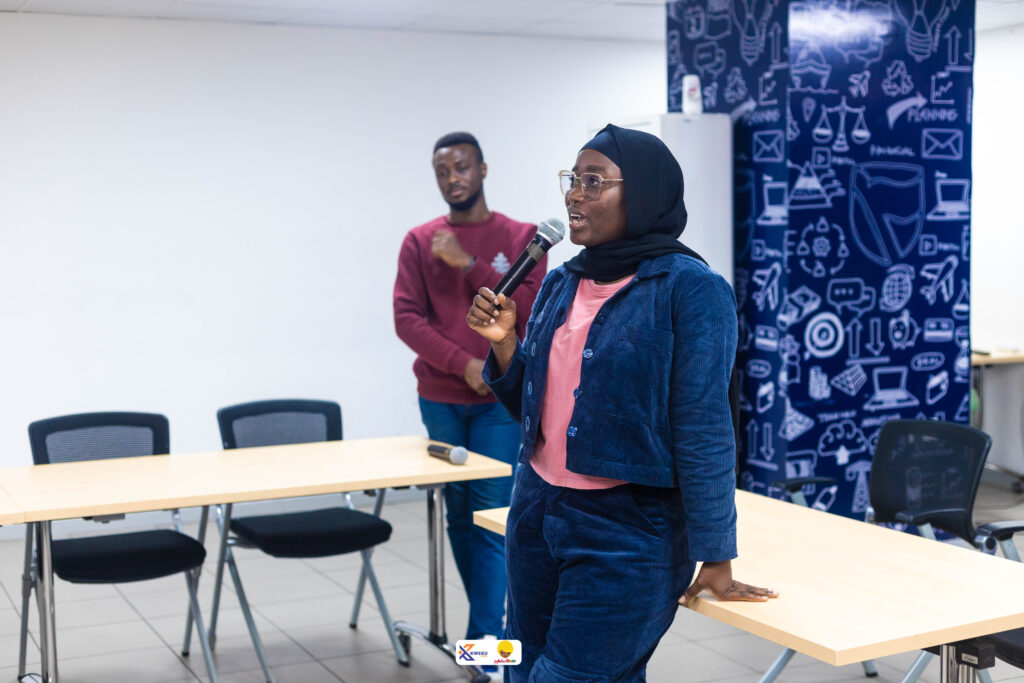
Furthermore, we aim to increase our focus on education and skill development. This includes offering more training programs, certification courses, and learning resources to empower individuals with the knowledge and expertise needed to excel in the field of cybersecurity.
Overall, our goal is to create a vibrant and inclusive community where members can learn, collaborate, and grow together. We are excited about the opportunities ahead and look forward to making a positive impact in the cybersecurity landscape this year.
What are some of the most rewarding aspects of being a cybersecurity
professional for you?
One of the most rewarding aspects of being a cybersecurity professional for me is the opportunity to make a real difference in protecting individuals, organizations, and society as a whole from cyber threats. Knowing that my work contributes to safeguarding sensitive information and ensuring the integrity of digital systems gives me a sense of purpose and fulfillment.
Furthermore, I derive immense satisfaction from the ongoing learning and professional development inherent in cybersecurity work. The field is constantly evolving, presenting new challenges and opportunities to expand my knowledge and skills. This dynamic nature keeps me engaged and motivated, as I strive to stay ahead of emerging threats and technologies.
Furthermore, I value the collaborative nature of cybersecurity work. It often involves working closely with colleagues, partners, and stakeholders to address complex challenges. Building relationships and collaborating with others in the cybersecurity community fosters a sense of camaraderie and shared purpose, making the work even more rewarding.
The ability to make a positive impact, the opportunity for ongoing learning and growth, and the sense of camaraderie within the cybersecurity community are some of the most rewarding aspects of being a cybersecurity professional for me.
You are a WTM ambassador, how does that make you feel?
Being a Women Techmakers (WTM) ambassador makes me feel incredibly proud and honored. It’s a role that allows me to support and empower women in the tech industry, advocating for diversity and inclusion. Knowing that I have the opportunity to make a positive impact on the lives and careers of fellow women in tech fills me with a sense of purpose and fulfillment. It’s truly rewarding to be part of a community that celebrates and champions the achievements of women in technology, and I am grateful for the opportunity to contribute in any way I can.
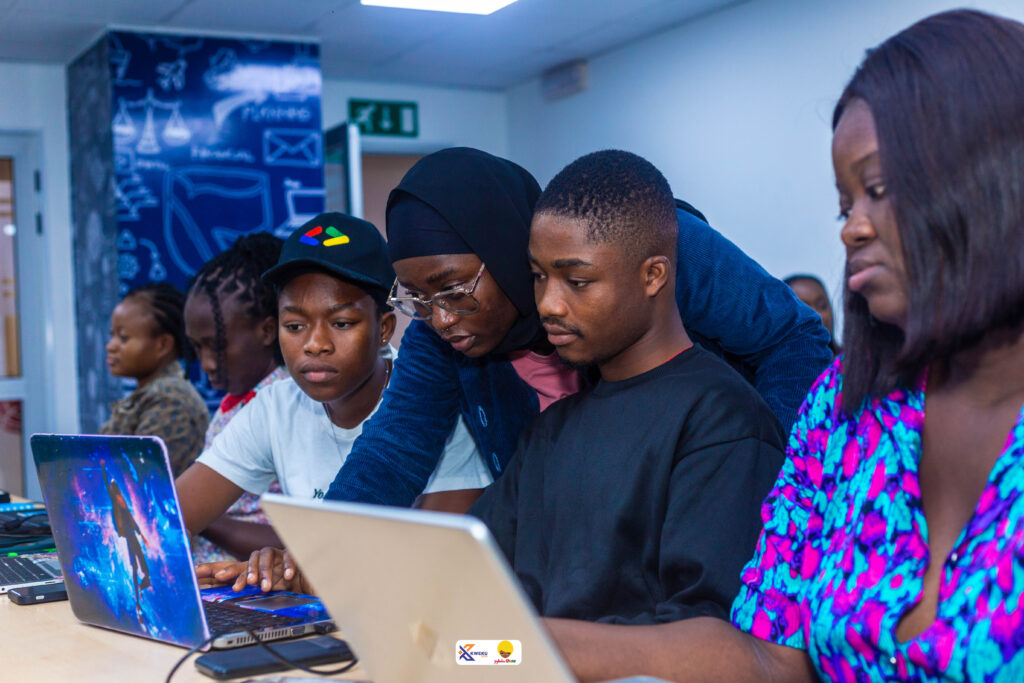
In your view, what are the biggest cybersecurity threats facing
individuals and organizations today?
In my view, some of the biggest cybersecurity threats facing individuals and organizations today include phishing attacks, ransomware, data breaches, and deepfake technology.
Phishing attacks continue to be a prevalent threat, with cybercriminals using deceptive tactics to trick individuals into revealing sensitive information or installing malware.
Ransomware attacks pose significant risks as well, with cybercriminals encrypting files or systems and demanding payment for their release, causing disruptions to operations and potential financial losses.
Data breaches remain a major concern, as attackers exploit vulnerabilities in systems and networks to gain unauthorized access to sensitive information, such as personal data or intellectual property.
Furthermore, the emergence of deepfake technology presents new challenges. This allows malicious actors to create realistic yet fabricated audio, video, or text content, which can be used for various malicious purposes, including spreading disinformation or impersonating individuals.
Additionally, the proliferation of Internet of Things (IoT) devices introduces security challenges. These interconnected devices often lack adequate security measures and can be exploited by attackers to launch cyberattacks.
Overall, addressing these cybersecurity threats requires a multi-faceted approach. This includes implementing robust security measures, raising awareness about cyber risks, and fostering a culture of security within organizations and among individuals.
What advice would you give to other young women considering a career
in cybersecurity?
My advice to other young women considering a career in cybersecurity would be to embrace your passion for technology and security and don’t be afraid to pursue your interests in this field. Despite any perceived barriers or challenges, know that your unique perspectives and experiences are valuable assets that can contribute to the cybersecurity industry.
Take advantage of educational opportunities, such as courses, certifications, and internships, to build a strong foundation in cybersecurity principles and practices. Additionally, seek out mentorship and networking opportunities to connect with other women and professionals in the field who can offer guidance and support along your journey.
Stay curious and keep learning, as cybersecurity is a constantly evolving field with new challenges and opportunities emerging all the time. Be proactive in seeking out new skills and knowledge, and don’t hesitate to ask questions or seek help when needed.
Most importantly, believe in yourself and your abilities. You have the potential to make a meaningful impact in cybersecurity, and your contributions are valuable and important. Stay resilient, persevere through challenges, and never underestimate the value of your voice and perspective in shaping the future of cybersecurity.
Finally, what resources (books, podcasts, networks, etc.) would you
recommend to aspiring cybersecurity enthusiasts?
For aspiring cybersecurity enthusiasts, there are numerous resources available to help you learn and grow in the field. Here are a few recommendations:
1. Books:
“The Art of Invisibility” by Kevin Mitnick
“Hacking: The Art of Exploitation” by Jon Erickson
“Cybersecurity for Beginners” by Raef Meeuwisse
“Tribe of Hackers” by Marcus J. Carey and Jennifer Jin
“Navigating the Cybersecurity Career Path” by Helen E. Patton
2. Podcasts:
“Darknet Diaries” – A podcast featuring true stories from the dark side of the internet, including hacking, cybercrime, and privacy breaches.
“Security Now” – A weekly podcast hosted by Steve Gibson and Leo Laporte, covering the latest news and developments in cybersecurity and privacy.
3. Networks and Communities: Join cybersecurity forums and online communities such as Women in cybersecurity(WiCyS) or cybersecurity-focused groups on LinkedIn. These platforms provide opportunities to connect with other enthusiasts, share knowledge, and seek advice from experienced professionals.
4. Online Courses and Training: Platforms like Tryhackme, Letsdefend, Coursera, Udemy, and Cybrary offer a wide range of cybersecurity courses and training programs.
5. Professional Organizations: Consider joining professional organizations such as (ISC)², ISACA, or CompTIA, which offer resources, networking opportunities, and certification programs for cybersecurity professionals.
By leveraging these resources and actively engaging with the cybersecurity community, you can gain valuable knowledge and skills to kickstart your journey in cybersecurity and advance your career in the field.
It’s a pleasure talking to you Faiza.
Thank you, the pleasure is mine.






